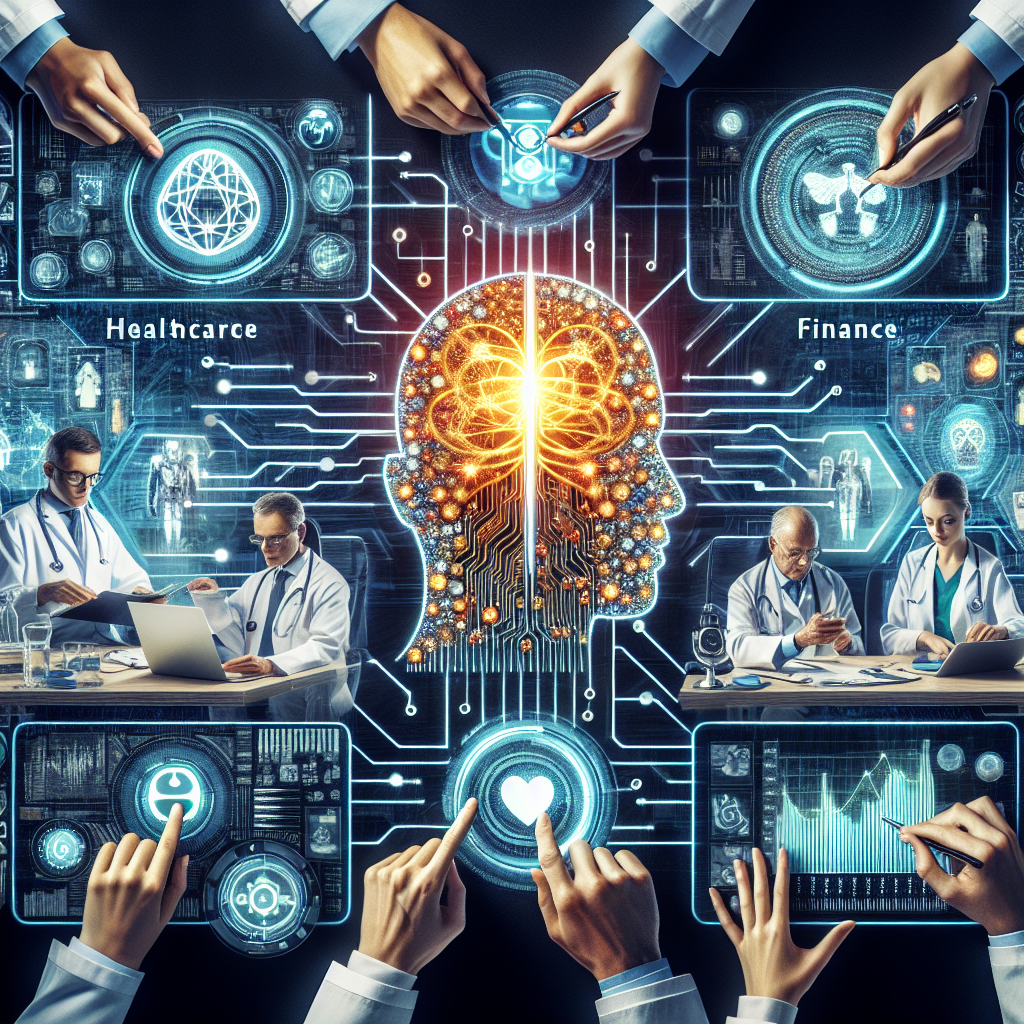Artificial General Intelligence (AGI) is a type of artificial intelligence that is capable of understanding and learning any intellectual task that a human being can. Unlike narrow AI systems that are designed for specific tasks, AGI aims to replicate human-like intelligence across a wide range of activities. The potential impact of AGI on various industries, including healthcare, finance, and many more, is enormous.
AGI has the potential to revolutionize healthcare by improving patient outcomes, reducing costs, and enhancing the overall quality of care. With its ability to analyze vast amounts of medical data and identify patterns that humans might miss, AGI can help doctors make more accurate diagnoses and create personalized treatment plans for patients. This could lead to earlier detection of diseases, more effective treatments, and ultimately, better health outcomes for patients.
In addition, AGI can help streamline administrative processes in healthcare, such as billing, scheduling, and record-keeping. By automating these tasks, healthcare providers can free up more time to focus on patient care, leading to a more efficient and cost-effective healthcare system.
AGI also has the potential to transform the financial industry by revolutionizing risk management, fraud detection, and investment strategies. With its ability to analyze vast amounts of financial data in real-time, AGI can help financial institutions identify potential risks and opportunities more quickly and accurately than ever before.
For example, AGI-powered systems can analyze market trends, predict stock price movements, and recommend investment strategies based on an individual’s risk tolerance and financial goals. This could help investors make more informed decisions and potentially increase their returns on investments.
Moreover, AGI can enhance cybersecurity efforts in the financial industry by identifying and mitigating threats in real-time. With cyberattacks on the rise, financial institutions need advanced technologies like AGI to protect their sensitive data and prevent breaches that could result in significant financial losses.
Beyond healthcare and finance, AGI has the potential to impact a wide range of industries, including manufacturing, transportation, energy, and more. By automating repetitive tasks, optimizing processes, and improving decision-making, AGI can help businesses increase productivity, reduce costs, and drive innovation.
However, the development of AGI also raises ethical and societal concerns. As AGI becomes more advanced, there are concerns about job displacement, privacy violations, and the potential misuse of AI technologies. It is essential for policymakers, researchers, and industry leaders to collaborate and establish guidelines to ensure that AGI is developed and deployed responsibly.
FAQs:
Q: What is the difference between AGI and narrow AI?
A: AGI is designed to replicate human-like intelligence across a wide range of tasks, while narrow AI systems are designed for specific tasks, such as speech recognition or image classification.
Q: How is AGI being used in healthcare?
A: AGI is being used in healthcare to improve patient outcomes, streamline administrative processes, and enhance decision-making for doctors and healthcare providers.
Q: What are the potential risks of AGI?
A: The potential risks of AGI include job displacement, privacy violations, and the potential misuse of AI technologies. It is essential for policymakers to establish guidelines to ensure that AGI is developed and deployed responsibly.
In conclusion, AGI has the potential to be a game-changer for healthcare, finance, and many other industries. By leveraging its advanced capabilities in data analysis, decision-making, and automation, AGI can help businesses and organizations drive innovation, increase efficiency, and improve outcomes for patients and customers. However, it is crucial for stakeholders to address the ethical and societal implications of AGI and work together to ensure that its development and deployment are done responsibly.

